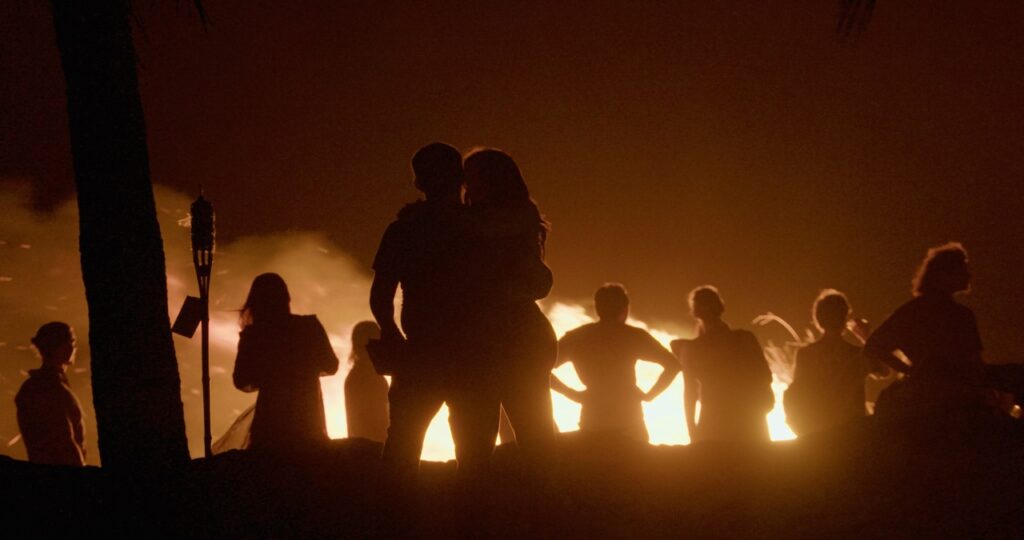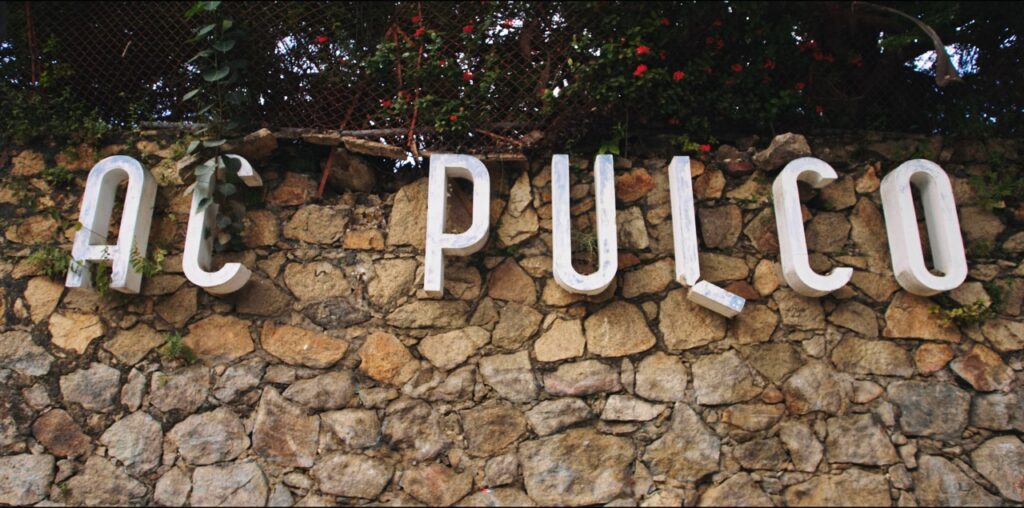Want to hear more from the actors and creators of your favorite shows and films? Subscribe to The Cinema Spot on YouTube for all of our upcoming interviews!
“Anarchist,” “anarchy,” and “anarchism” are loaded words. For those unfamiliar with anarchism as a philosophy and movement, chaos, bomb-throwing, terrorism, and lawlessness are only some of the words that one may associate with the infamous ideology. However, the violence that the state, media, and politicians delight in associating anarchism with is incredibly skewed. Anarchists are only as violent as the state is coercive and even at that, it is entirely possible to resist the state with non-violent means.
So what is anarchism? As an anarchist myself, I could talk your head off about it, however, I will do my best to refrain from doing so and reserve any remotely academic definition of it till the end of this review. Instead, let us let Todd Schramke, executive producer and documentarian of The Anarchists explain to us what the word means as he explores the world of anarcho-capitalism in Acapulco, Mexico in HBO’s latest original documentary, The Anarchists.

Overall Plot and Episode Synopsis of HBO’s The Anarchists Episode 1
The Anarchists is an HBO Original six-episode documentary directed by Todd Schramke and produced by Blumhouse Television. Schramke follows Jeff Berwick, a Canadian entrepreneur turned anarchist who founded and launched an annual anarchist conference in Acapulco, Mexico called Anarchopulco. The documentary follows Berwick and Anarchopulco for over six years and chronicles various people and their families as they explore anarchist capitalism and how they may protect themselves and their children from the state.
This first episode, “The Movement” specifically sets the stage by introducing us to the three major players: Berwick, our titular playboy and anarcho-capitalist; Nathan and Lisa Freeman, a husband-and-wife duo who uprooted their lives in America and moved to Acapulco in hopes of living and further establishing an anarcho-capitalist community for their children to grow up in; and John Galton and Lily Forester, American refugees on the run from criminal charges hoping to find a safe haven in Acapulco with anarcho-capitalist community.
The episode starts out with a group of adults and children standing around a bonfire preparing for a “good old-fashioned book burning.” The camera pans to a group of children facing the fire, flipping off the burning books, and yelling “Fuck the state!” (00:45, 01:17). This scene is followed by Ned Freeman, one of the organizers of the Anarchopulco conference, indicts the state for trying to tell him how and what to speak about and what he can and cannot teach his children.
However visceral this scene is with books burning under the black banner of night, as an initial depiction of anarchism, it is a sloppy and irresponsible portrayal of the philosophy and movement, which will echo throughout the documentary on both the documentarians’ side and the subjects’ side.
Anarchism According to Capitalists (and Schramke)
Schramke, as of the premiere episode, does not explore or provide a solid definition or exploration of Anarchism as a philosophy, movement, or set of praxis. Despite stating that most people subscribe to the anarchist ideology Schramke provides us with the flimsy superficial definition of anarchism as the organization of society on the bases of voluntary cooperation without political institutions or government. This is the first definition that Google will spit out when you enter “anarchism” into its search bar. For a far less accurate and more irresponsible definition of anarchy, we can turn to Berwick, our titular anarchist capitalist who defines anarchism as self-ownership, an ideology and set of praxes that is against slavery and is the most peaceful ideology in the world. While there are elements of truth in these definitions provided for us, it would be woefully irresponsible and ignorant to take either Schramke or Berwick’s words as anything but superficial and flimsy.
As an exploration of anarchism, the documentary can be split into two. In the first half, Schramke explores what anarchism is according to Berwick and the other convention-goers. Meanwhile, in the second half of the episode, the documentary shifts its focus from anarchism in general to the specific type of anarchy that Berwick is advocating for — anarcho-capitalism.
Moving on to exploring how anarcho-capitalism is defined by the subjects of this documentary, our first definition of anarcho-anarchism is provided by Juan Gault, a researcher, content creator, and one of the minor voices (so far) in this documentary. He defines anarcho-capitalism as a type of utopian society that can be properly organized through voluntary trade. We are also provided with a brief definition from Wikipedia which contends that Anarcho-capitalism is a “political philosophy that says that governments are not needed but that property rights are needed” (20:52-21:04).
With this in mind, let us turn to the conference that Jeff Berwick founded and premiered in Acapulco, Mexico in 2015. The conference is pithily titled, Anarcopulco, and it centers around the gathering of anarcho-capitalists and the exploration of this specific subset of the anarchist philosophy and set of praxes and its application. Now, returning to Juan Gault, the purpose of this conference is to “escape society and start anew around anarcho-capitalism” (20:50). Thus far, it appears as if Berwick, Freeman, and the other anarcho-capitalists of Anarchopulco are genuinely attempting to accomplish this objective with this annual conference. With that said, its success or failure has yet to be seen or even hinted at in this premiere episode.
If we are looking only at the premiere episode, the major issue with the documentary is how anarchism is defined and portrayed. With only the very broad, flimsy, and superficial definitions of anarchism from Google provided to viewers along with quick clips of rioting and protest, anarchism is once again misrepresented. Anarcho-capitalism is given more thought and is slightly more fleshed out, although it is never explicitly defined. Without getting becoming pedantic, allow me to briefly and succinctly explore and define these two terms since it is essential to understanding not only my critique of how anarchism is portrayed and explored initially in the premiere episode of this documentary but also the critiques of this form of anarchism that will come from other subjects in this documentary.
A Broad, But More Solid Definition of Anarchism
Anarchism, as defined by Rudolf Rocker, an anarchist historian, is the abolition of all coercive institutions and monopolies that comprise the state and the replacement of those coercive horizontally organized and cooperative societies. The way this may be accomplished is too complex and nuanced to get into at this point, but please note that the abolition of the state and its coercive entities does not always entail violence. Anarchist violence is proportional to how coercive the state is in maintaining its form.
Moving onto Anarcho-capitalism, let’s turn to Peter Marshall, the author of Demanding the Impossible: A History of Anarchism. According to Marshall, anarcho-capitalism is a complete laissez-faire economy and the turning over of all public entities and services to private entrepreneurs (560). Having provided a broad but more concrete definition of anarchism, we can see the issue of this specific brand of anarchy. How can capitalists be anarchists if they only seek the dissolution of the public state but advocate for the creation of the private corporate state? Moreover, this brand of anarchy only favors the few who have enough capital to create a private state.
Following the above thread on the issues with anarcho-capitalism, we can see these threads unravel throughout the documentary. The primary one that I noticed was an illustration of the wide division of class and the obliviousness of these bourgeoisie anarcho-capitalists. This divide is best illustrated in a scene where Nathan Freeman and Berwick are speaking to each other at their hotel about how “safe” Acapulco is as long as you aren’t a cartel member. This scene is paired with an explanation of how Acapulco transformed from a resort town to one of the most dangerous cities in Mexico.
According to Gustavo Sartorius, the owner of Verde Vegan, a restaurant that Nathan and Lisa Freeman, along with other anarcho-capitalists frequent, Acapulco was previously famous in the 1930s and ’40s as a resort town. However, now it is more known as a dangerous city where drug cartels took over and ushered in a new wave of violent crime. All of this is paired with news clips of the devastating effects that the drug cartels have had on what appears to be the average middle-class neighborhoods and citizens.
In an interview with Berwick, Nathan Freeman laughs off the warnings that Acapulco is dangerous. From their private hotel balcony, he asserts that there the city is safe and the only people who have anything to worry about are drug dealers. The juxtaposition of Berwick and Freeman’s arrogance and obliviousness to how crime affects the middle and lower classes of Acapulco is done masterfully by highlighting the extreme exclusivity of the “pay to play” nature of anarcho-capitalism.
Final Thoughts on “Anarchism” as Portrayed in The Anarchists

While there are many issues that I have with this premiere episode of The Anarchists and how anarchism is represented, if this documentary only sang the praises of Anarchopulco and anarcho-capitalism I would warn you not to watch it. However, toward the end of this premiere, “The Movement”, we are given a dissenting voice.
Lily Forester shares her opinion of Acapulco as a largely fraudulent event run by people who are not true anarchists. The premiere episode ends with Forester’s critique angering Nathan Freeman, one of the primary organizers of Anarchopulco, and it is Forester’s story and her opinion of the conference and the community that makes the documentary worth watching. Whereas the majority of the premiere is focused on starry-eyed anarcho-capitalists who have deluded themselves into thinking they are fighting for freedom and peace, Forester, who had lived in an anarchist community with her partner before fleeing to Mexico, is unafraid to accuse the anarchists of Anarchopulco as amateurs who have very little to no experience as anarchists.
Forester’s story and her critique of Anarchopulco make this documentary worth watching, and it is my hope that, through her and through other dissenting voices in this documentary, we get to explore more of the complexity and nuance that anarchism as an overarching philosophy and movement has to offer. As it stands now, if we were left solely with how anarchism was explained and defined at the start of this documentary, all we would have is another flimsy and irresponsible representation of anarchism in the media.
This article was edited by John Tangalin.
